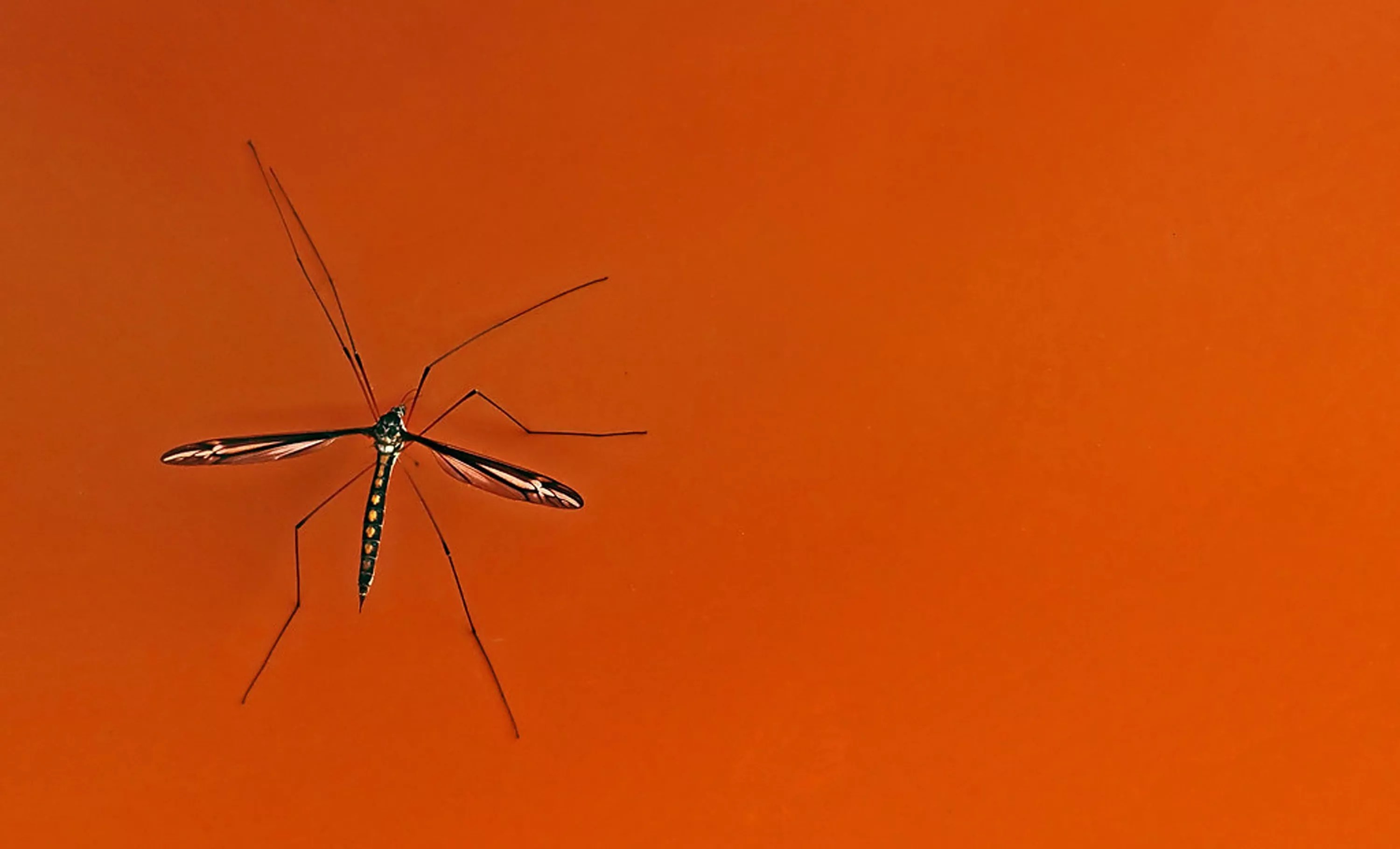
Photo by Michel Boulé on Unsplash

Audio By Carbonatix
Seeing just about any mention of a virus in the news or in your inbox hits a little differently now than it did before COVID-19 shut the world down in 2020. A recent WFAA headline read: “First West Nile Virus Case of 2023 Confirmed.” It’s OK to admit such a story grabs your attention more now than it likely would’ve in 2019, or perhaps more than two decades ago when the virus was first raging on American soil.
On July 10, Dallas County Health and Human Services (DCHHS) announced a Dallas man had been diagnosed with West Nile virus. “We are reporting the first human case of West Nile Virus of the 2023 season,” said Dr. Philip Huang, DCHHS director in the WFAA report. “WNV is transmitted to humans by the bite of an infected mosquito, and people should be careful when going outside to enjoy outdoor activities.”
Before the coronavirus, before the Ebola outbreak of 2014, before the swine flu hit American shores in 2009 and even before many thousands became sick with SARS in 2003, the West Nile virus spread though the U.S., hitting especially hard in 2002. More than 4,000 people were infected that year, resulting in 284 deaths.
Transmitted by the bite of an infected mosquito, the West Nile virus can result in headaches, high fever, muscle weakness, tremors and even stupor. Thanks to increased safety awareness and widespread efforts to reduce the infected mosquito population through fumigation, the number of West Nile Virus cases has been drastically reduced over the years.
This year, make your gift count –
Invest in local news that matters.
Our work is funded by readers like you who make voluntary gifts because they value our work and want to see it continue. Make a contribution today to help us reach our $30,000 goal!
“Unfortunately, this is the time of year we get hit by mosquitoes.” – DCHHS spokesperson Christian Grisales
But in the hot Texas summers when pesky mosquitoes can reign supreme, the dangers of West Nile virus are ever-present. DCHHS announced a second local case on July 21 and a few days later said that several mosquitoes had tested positive for the virus in Dallas, Farmers Branch, Irving and Richardson.
“Unfortunately, this is the time of year we get hit by mosquitoes,” said DCHHS spokesperson Christian Grisales. “If you’ve spent time outdoors recently, you probably already know that.”
Grisales said following what he called “the four Ds” will go a long way to keeping residents from getting sick from a mosquito bite:
DEET: Whenever outside, use insect repellents that have the active ingredient DEET or other EPA-registered repellents, and always follow label instructions.
DRESS: Wear long, loose and light-colored clothing outside.
DRAIN: Drain or treat all standing water in and around your home or workplace where mosquitoes could lay eggs.
DUSK to DAWN: Limit your time outdoors from dusk to dawn, when mosquitoes are most active.
Although the county has identified West Nile virus in humans and mosquitoes this year, no WNV deaths have yet occurred in 2023. Last year, there was one West Nile virus death and three human cases in Dallas County. Nationwide this year, 69 cases have been reported, including 43 in Arizona. The virus may not be as prevalent as it once was but, Grisales said, “It’s still dangerous and it’s still important to prevent mosquito bites.”
The mosquitoes that have recently tested positive for WNV from North Texas were found in traps that DCHHS has set up throughout the county. A team of specialists monitors the activity of the traps and when a positive case is found, the department sends out a press release to alert the public that West Nile virus has been located in the area and that fumigation efforts will soon take place.
Grisales said DCHHS recommends people in the affected ZIP codes stay inside as much as possible until ground spraying takes place. That and the four Ds, after all, is what has kept Dallas County largely safe from the dangerous virus for many years now. The summer is still young, so having this knowledge and applying it now can potentially save a life
“The ground spraying works,” Grisales said. “It’s really helped eradicate the mosquitoes in the affected areas, which is why we don’t have a high number of human cases, and people are more aware now of how impactful mosquito bites can be.”